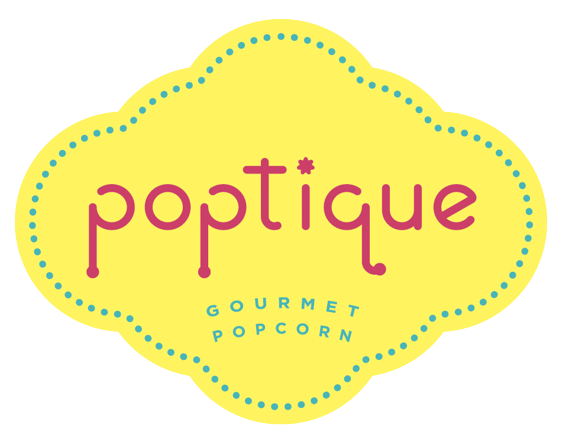Popcorn Power: How a Small Gesture Can Make a Big Impact on Client Loyalty
Remember that time you went above and beyond for a client? Maybe you stayed late to meet a deadline or helped them troubleshoot a tricky issue. Weeks later, you received a message – they were raving about your service and mentioned how much they appreciated the extra effort. It feels good, right?
Now imagine that on top of stellar service, you also sent them a small, personalized gift. How do you think that would make them feel?
Today, client loyalty is more important than ever—especially if you’re a small business. It's your loyal clients who come back for repeat business, refer you to their network, and sing your praises from the rooftops. But how do you keep those clients feeling valued and appreciated in a world of mass emails and generic marketing campaigns?
The Power of Personalized Gifting
Think about it: when someone gives you a gift, it makes you feel good, right? It shows they were thinking of you and took the time to pick out something special.
Psychologically, receiving a gift triggers feelings of appreciation and reciprocity.
We naturally want to return the favor, which strengthens the bond between you and the giver. This is the essence of "relationship marketing" – building connections that go beyond just a transaction.
Now, generic gifts like a branded pen or a coffee mug? Those are easily forgotten. A personalized gift, on the other hand, demonstrates that you pay attention.
It shows you took the time to understand their preferences or even their location. In the age of "experiential marketing," where it's all about creating a memorable experience, a thoughtful gift can leave a lasting impression.
But the power of personalized gifts goes beyond just feeling good. Remember the concept of "loss aversion"? It means we tend to feel the sting of loss more acutely than the pleasure of gain.
A thoughtful gift reinforces the value of the client relationship. It reminds them of the positive experience they've had working with you, making them less likely to consider switching to a competitor.
Examples of Personalized Gifts
So, how do you put experiential and relationship marketing into action? Here are a few ideas you can try:
Curated Food and Beverage Samplers: Forget the fruit basket and cookies—curated samplers are a great way to show you put thought into your gift! Consider a selection of gourmet teas or coffees, perfect for a client who needs a midday pick-me-up.
For the health-conscious client, a sampler of organic juices, a tasty popcorn gift box, or a set of artisanal nut butter could be a big hit. If you know they love how to cook, a selection of high-quality spices or infused oils might be appreciated.
These are just a few examples; the key is to look for gifts that match your client’s interests and needs.
Location-specific Gifts: Traveling for business? Think about picking up a local treat or product specific to the client's location. This shows you not only care about their business but also took note of where they are. Think locally-made chocolates in Seattle or a jar of Texas pecan pralines. Tapping into "place branding," you're associating the client with a positive memory – that delicious treat they received from you.
Client-specific Personalization: Want to take it up a notch? Customize your gift packaging with your client’s name, logo, or a short message. A small touch like this shows that you put extra thought into the gift.
You can also consider including a handwritten card tucked inside the box with a personalized message expressing your appreciation for their business. A few extra minutes of effort can go a long way in strengthening the client relationship.
Making It Last: Beyond the Gift
A perfectly chosen gift is a great start, but it's not the only piece of the puzzle. Here's how to make sure your strategy has a lasting impact:
Following Up: Don't let the gift be the last point of contact. Follow up with a call or email a few days later to see if they received it and how they're doing. This keeps the conversation going and demonstrates your commitment to building a long-term relationship. Think of it as part of your CRM (Customer Relationship Management) strategy – keeping communication channels open and fostering loyalty.
Long-Term Strategy: Remember, personalized gifting should be a long-term strategy, not a one-time gesture. Think about incorporating it into your client appreciation program. Sending a small gift on their birthday or company anniversary shows you're invested in the relationship and keeps your company at the forefront of their mind. The idea is to build customer lifetime value – the total business a client brings you over the course of your relationship. By consistently demonstrating your appreciation, you encourage them to keep coming back for more.
Final Thoughts: A small gesture like a gourmet popcorn sampler or a beautifully packaged tea set can have a surprisingly big impact on client loyalty. It shows you care, strengthens bonds, and reminds them why they chose to do business with you in the first place. So, forget the generic marketing tactics and embrace the magic of personalized gifting. Your clients will thank you for it, and your business will reap the rewards of their continued loyalty.
Written by Katherine Pierce



